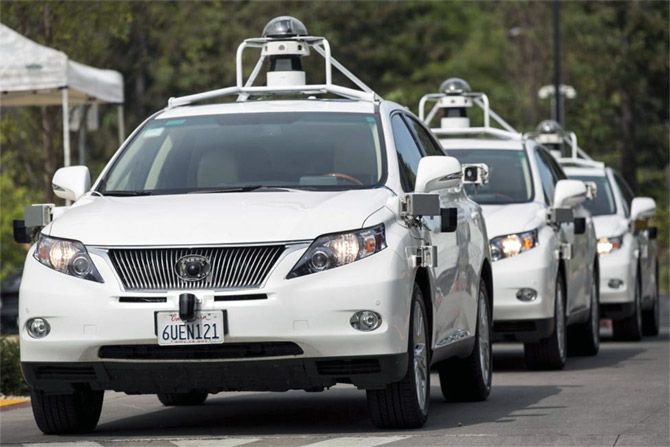'It is a gradual process of saying we want to have all the decisions across business sectors available in India as well,' says Bosch president and MD, Steffen Berns.

Bosch India, local (Bengaluru-headquartered) unit of the German engineering and technology company, is expanding focus beyond automobiles, to offer connected solutions and services for homes, factories, mining and agriculture. Steffen Berns, president and managing director, talks about these and other changes, to Anita Babu and Raghu Krishnan.
Bosch going beyond mobility has been there globally. What’s new in India?
If we look at it in a 10-year horizon, most of this is new. If you look at a two-year horizon, nothing is new. It’s not that now there’s a big bang and everything is changing but it is a gradual process of saying we want to have all the decisions across business sectors available in India as well. We are now looking at applications.
What’s new is that we’re looking at solutions to provide connected or smart everything, from smart cities to homes, mining, packaging and even agriculture. The solution business and the connected business also means we’re not looking at products only but also hardware, sensors, software and services.
How do you transform Bosch into a services company? You were a product company.
The changes in the world are evident and, hence, the awareness part is not the most difficult. In India, we’re in a relatively good position because about half our people are in the service business already. They are doing engineering and software services, in addition to administrative services.
The second strong point of our engineering is that it happens to be our largest R&D (research and development) centre outside Germany.
Is Bosch geared for the timeline the government has set to meet BS-VI (automobile emission) norms?
We have the technology and the competencies, partly in India and partly in other locations. Because of the international engineering network, we can act quite flexibly and do the applications.
I think everybody has to prioritise and the number of (automobile) variants on the road must be reduced because you can’t do all these applications at once. The most important ones should be doable and there’s close interaction with our customers, the original equipment manufacturers to the suppliers.
This is still relatively early in the process. There are lots of discussions and work phases are going on. We’ll have to see how this is going to work through.
What are the challenges (to implement BS-VI)?
There are many, from new technologies that have to be introduced to new designs or some design modifications. In India, you have to do this under thriving conditions and different climatic conditions.
Finally, the fuel is critical. The timely availability of BS-VI fuel, low sulphur, and to make sure there’s sufficient lubrication, you’ve additives, and this has to be tested. Definitely. How far it’s going to work out is something we have to see in the future.
We saw India leapfrogging from landlines to mobile phones. Where does India’s auto sector leapfrog to?
The opportunity for India is strongly differentiated in the small cars segment and in affordable mobility. We see many more of small and lighter vehicles in India than in other countries. It’s a specific Indian segment, also with specific challenges in BS-VI because these are going to get expensive.
On the automotive side, I don’t see India leapfrogging at the moment. On the smart manufacturing side, I think there’s good scope.
The world is moving towards electric and driverless cars. Are you working in India towards this?
We are working on this because we are part of the global network. The question is when is this going to come in India? On the autonomous, probably slightly later than the other countries because the traffic situation is a bit different here.
But, we do not have to talk about fully automated. There’s valet parking, the first step. There will also be a lot of support functionalities.
We have seen labour issues with Bosch. Is it a concern?
We are currently in a peaceful phase. It is not the (recognised labour) union that is protesting. There has been an overall transition from the mechanical to the electronic system, as a result of which we had surplus manpower. We had to discontinue the contracts of 260 employees. We did this a year ago, within the legal framework and with the union agreement. Nevertheless, they continue to protest.
But, we take the position of fair and firm. We did provide them fair compensation on humanitarian grounds but they expect more.
Image: A line of Lexus SUVs equipped with Google self-driving sensors await test riders during a media preview. Photograph: Elijah Nouvelage/Reuters.










